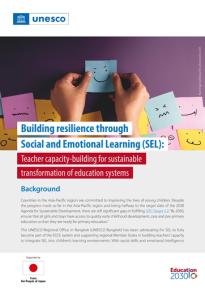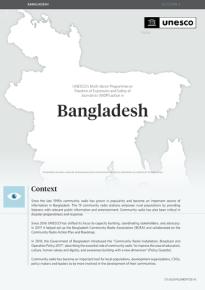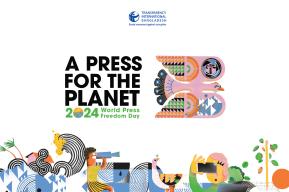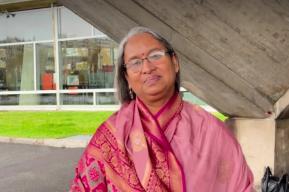News
Launch of Capacity Development for Education (CapED) Programme to advance quality education and achieve SDG 4 in Bangladesh

The Government of Bangladesh is delighted to announce the successful approval of the "Capacity Development for Education (CapED) Programme." Spearheaded by the Ministry of Education, CapED is a collaborative endeavor involving directorates and agencies under both the Ministry of Education (MoE) and the Ministry of Primary and Mass Education (MoPME), including the Bangladesh Bureau of Statistics (BBS), along with various education stakeholders and development partners.
The Financial Agreement for this crucial program was officially signed today at the Economic Relations Division (ERD). Ms. Sharifa Khan, Honorable Secretary of ERD, and Dr. Susan Vize, Head of Office (a.i.) and UNESCO Representative to Bangladesh, presided over this momentous event. AKM Sohel Wing Chief, UN Wing moderated the Signing CeremonThis marks a significant milestone in Bangladesh's commitment to quality education, aligning with its national goals and the SDG Summit, both vital components of Sustainable Development Goal 4.
Over the next 38 months the CapED program aims to strengthen capacities to achieve national education objectives in line with SDG 4 (Ensure inclusive and equitable quality education and promote lifelong learning opportunities for all). UNESCO will closely collaborate with education ministries and their associated agencies and directorates to:
- Enhance the capacity of MoE and MoPME in reviewing and developing education policies and strategies, including metadata and benchmarking for National Indicator Framework indicators to monitor and report on a national, regional, and global scale, in alignment with SDG 4.
- Develop a gender-responsive Comprehensive National Teacher Strategy through a participatory approach involving ministries and teacher organizations.
- Establish a national ICT Competency Standard for teachers to contribute to the digital transformation of the education system.
- Integrate Global Citizenship Education (GCED) and Education for Sustainable Development (ESD) into in-service teacher training curricula, provide learning materials, enhance classroom teaching and assessment, and build the capacity of government officials under the education ministries.
Dr. Vize emphasized the significance of commencing the CapED Programme, acknowledging its global reach as a UNESCO initiative, active since 2003, covering 20 least-developed countries, including Bangladesh. She expressed gratitude to the Government of Bangladesh for advancing this program, which will enhance capacity for better planning, implementation, monitoring, and reporting of the education program, in addition to developing a Comprehensive National Teacher Strategy for Bangladesh, contributing to the achievement of SDG 4.
Ms. Khan underscored that education, represented by SDG 4, serves as the linchpin for the other 16 SDGs. Quality education breaks the cycle of poverty, reduces inequalities, promotes gender equality, fosters healthier and more sustainable lives, and is fundamental to fostering tolerance and building more peaceful societies.
The enactment of the Capacity Development for Education (CapED) Programme is poised to provide substantial advantages to education ministries, their affiliated entities, and the Bangladesh Bureau of Statistics. It will bolster their capacity for improved planning, execution, monitoring, and reporting across national, regional, and global contexts.









